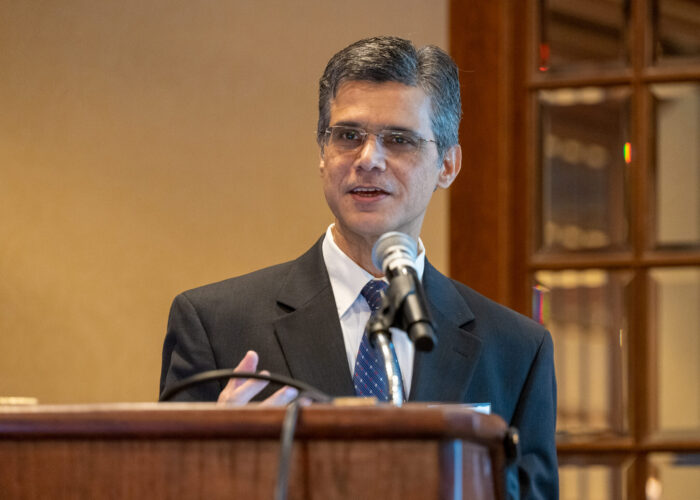Program Overview
The Ali Massumi Cardiac Arrhythmia Symposium is a 1-day hybrid symposium designed to improve the knowledge, competence, and performance of healthcare professionals with regard to all aspects of arrhythmia management. By providing attendees with the latest information, techniques, and best practices in arrhythmia management, the symposium can help to improve the quality of care for patients with arrhythmias. This symposium will raise awareness and educate electrophysiologists, cardiologists, cardiovascular surgeons, internists and general medicine practitioners about new management methods for and developments in treating patients with arrhythmias, along with the best practice approaches to clinical diagnosis, evaluation, and management of abnormal heart rhythms.
Purpose
The symposium will improve knowledge, competence, and performance of healthcare professionals with regard to all aspects of arrhythmia management.
This could lead to a number of other beneficial outcomes, such as:
• Increased referrals for specialized arrhythmia care in patients with high-risk features.
• Increased utilization of new and effective arrhythmia treatments.
• Improved adherence to evidence-based arrhythmia management guidelines.
• Better patient outcomes, including reduced mortality and morbidity from arrhythmias.
Learning Objectives
• Select the appropriate intramural PVC ablation procedure for individual patients
• Perform the selected procedure safely and effectively
• Manage post-procedural complications
• Describe the role of CSP in the management of patients with bradycardia, heart failure, and other arrhythmias
• Explain the challenges associated with CSP and how to overcome them
• Select the appropriate CSP device and lead system for individual patients
• Explain the role of leadless pacing in the management of patients with bradycardia, heart failure, and other arrhythmias
• Discuss the latest advances in leadless pacing technology
• Select the appropriate leadless pacing device and implantation technique for individual patients
• Explain the role of S-ICDs in the management of patients with high-risk arrhythmias
• Discuss the advantages and disadvantages of S-ICDs compared to traditional transvenous ICDs
• Identify the patients who are most likely to benefit from S-ICDs
• Select the appropriate S-ICD device and implantation technique for individual patients
• Explain the role of CNA in the management of patients with atrial fibrillation, ventricular tachycardia, vasovagal syncope, and other cardiovascular disorders
• Discuss the advantages and disadvantages of CNA compared to other treatment modalities
• Identify the patients who are most likely to benefit from CNA
• Identify the patients who are at high risk for stroke due to LAA pathology and are suitable for LAAO
• Recommend the most appropriate LAAO device and implantation technique for each patient
• Discuss the efficacy and safety of new Atrial Fibrillation treatments, based on clinical trial data
• Identify the patients who are most likely to benefit from each new AF treatment modality
• Explain the physiological effects of CCM on the heart
• Discuss the benefits and risks of CCM compared to other heart failure therapies
• Identify the potential complications of CCM and how to manage them
Target Audience
The symposium has been designed for: cardiologists, cardiologists with an interest in electrophysiology, cardiac electrophysiologists, cardiovascular surgeons, internists with an interest in cardiology, cardiology fellows, Baylor St. Luke’s Medical Center Cath Lab technicians, family and general practitioners.
Accreditation
The Texas Heart Institute is accredited by the Accreditation Council for Continuing Medical Education (ACCME) to provide continuing medical education for physicians.
Credit Designation
The Texas Heart Institute designates this live activity for a maximum of 6.25 AMA PRA Category 1 CreditsTM. Physicians should only claim credit commensurate with the extent of their participation in the activity.
ABIM MOC Credit
Successful completion of this CME activity, which includes participation in the evaluation component, enables the participant to earn up to 6.25 Medical Knowledge MOC points in the American Board of Internal Medicine’s (ABIM) Maintenance of Certification (MOC) program. Participants will earn MOC points equivalent to the amount of CME credits claimed for the activity. It is the CME activity provider’s responsibility to submit participant completion information to ACCME for the purpose of granting ABIM MOC credit. Successful completion is a passing grade of 70% on the assessment in the CME evaluation.
The deadline to complete the MOC section of the CME evaluation is 2 weeks after the day of the symposium.






